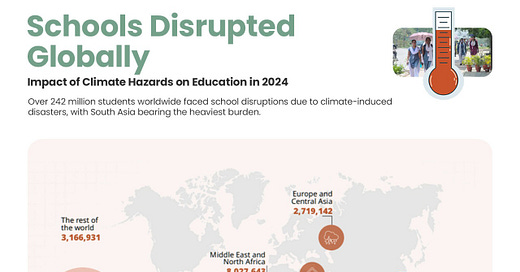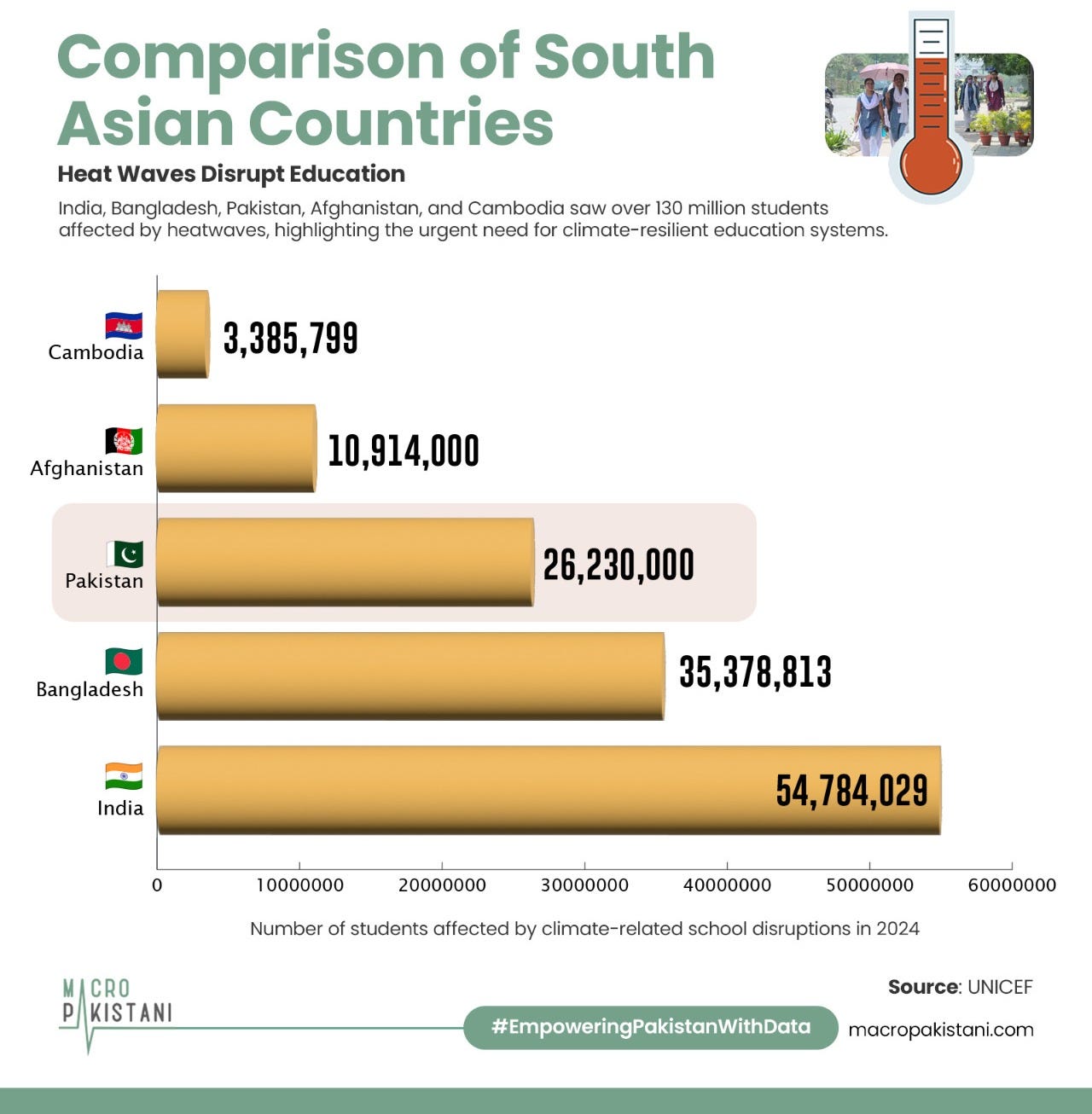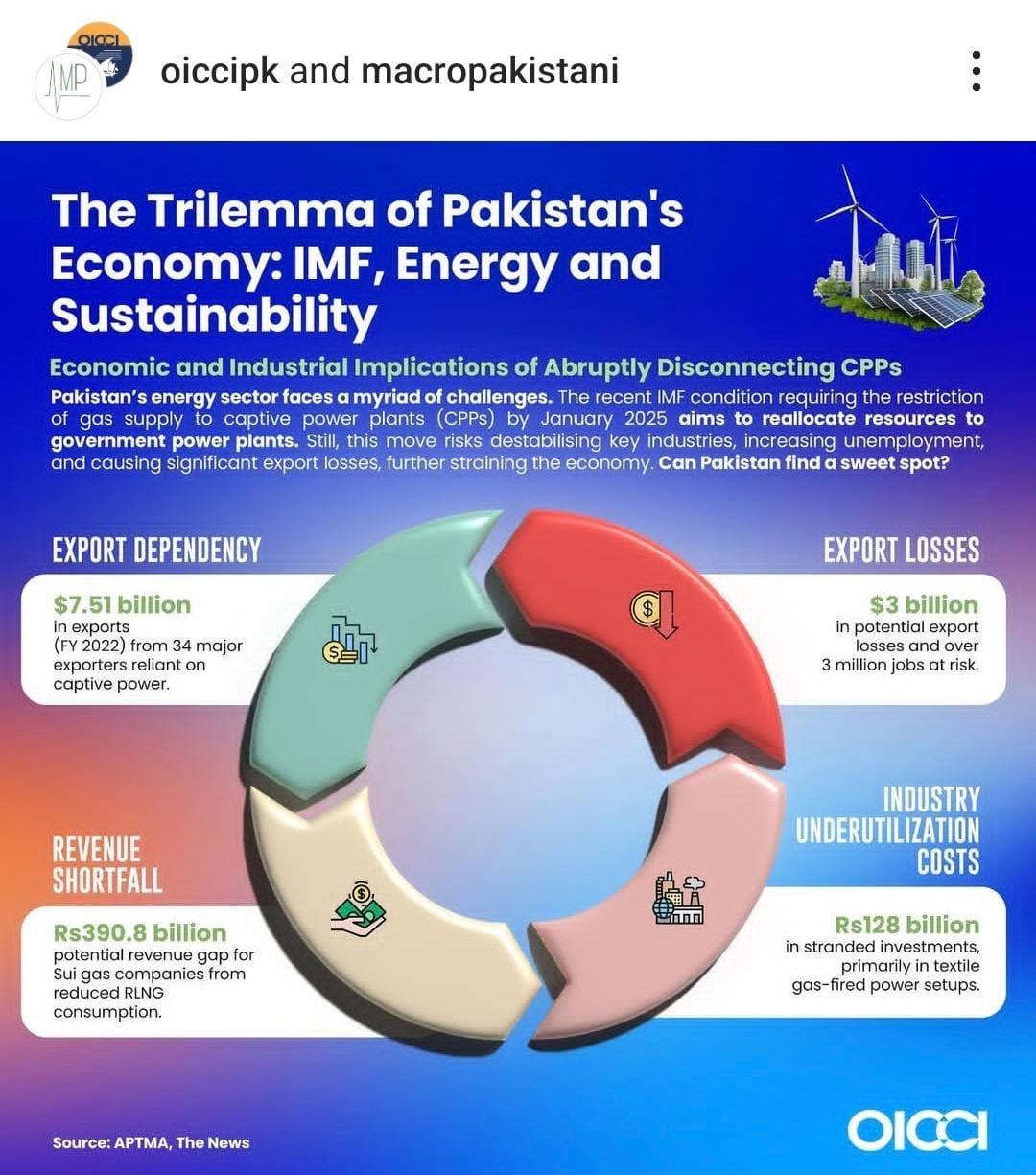Climate Hazards in South Asia
In 2024, South Asia led the world in climate-related school disruptions, with 128 million students affected by heatwaves, cyclones, and floods.

Heatwaves were the most significant hazard in the region, impacting over 63 million children in April alone, as countries like Bangladesh, India, Cambodia, and the Philippines faced nationwide school closures. These heat waves hindered learning by affecting children’s ability to concentrate and retain information. The region also faced other climate hazards, such as tropical cyclones and floods, further exacerbating educational disruptions. This underscores the urgent need for climate-resilient education systems to protect children’s learning in a region increasingly vulnerable to climate change.
How can South Asia build climate-resilient education systems to protect the future of its children?
Pakistan faced significant educational disruptions, 26,230,000 students were affected due to climate hazards, particularly heatwaves and floods, which are recurring challenges in South Asia. As part of the region where 128 million students were affected by climate-related school disruptions, Pakistan experienced severe impacts on its education system, with infrastructure damage and school closures hindering learning. Heatwaves were the leading climate hazard in South Asia, affecting children’s ability to concentrate and disrupting routine schooling.
Additionally, like other countries in the region, Pakistan faces secondary challenges such as an increased risk of child marriage, which disproportionately affects adolescent girls, leading to permanent disruptions in their education. These challenges highlight the urgent need for investments in climate-resilient education systems to safeguard children’s right to learn
To address the crisis of climate-related school disruptions, UNICEF urges governments and partners to integrate climate change education into national policies, plans, and education systems. Increased financing is essential to build climate-resilient education sectors, focusing on greener, safer school infrastructure, integrating climate education into curricula and teacher training, and empowering youth through local climate action. Strengthening data collection and monitoring systems on the impacts of climate events on education is also critical.
By implementing these solutions, countries can protect children’s learning, build resilience, and ensure education systems withstand the growing challenges posed by climate change.
GRAPHICS
Macro Pakistanis who read this newsletter can directly give us feedback via Substack chat:
Data Visualization & Marketing Partner: Brand Nib
Visit: https://macropakistani.com/advertise/
Grateful for the ever-growing list of collaborators!
About Us: Macro Pakistani is a data-driven research platform that aims to provide a basic understanding of Pakistan’s economy. If you have an interest in contemporary news but are currently overburdened with sensationalism and specialized vocabulary, we are the platform for you.
How are we doing? Please send us any questions, comments or suggestions by replying to this email.






